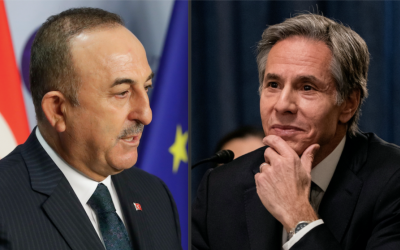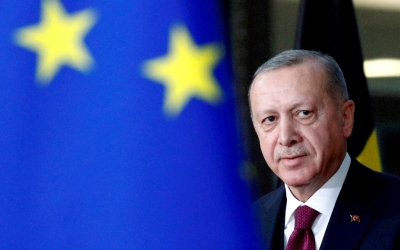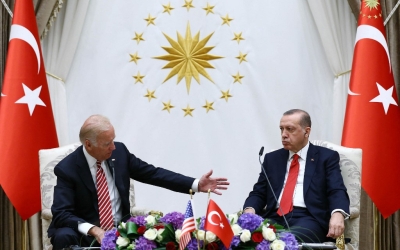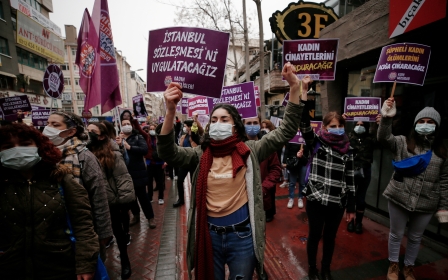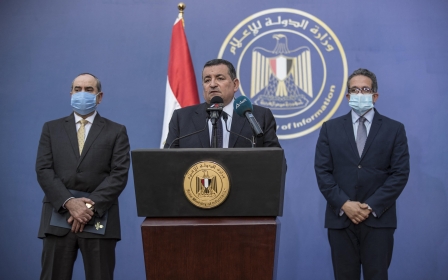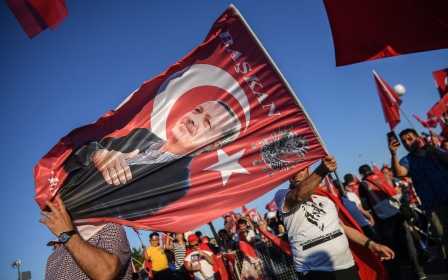US urges Turkey to give up Russian S-400 missile defence system
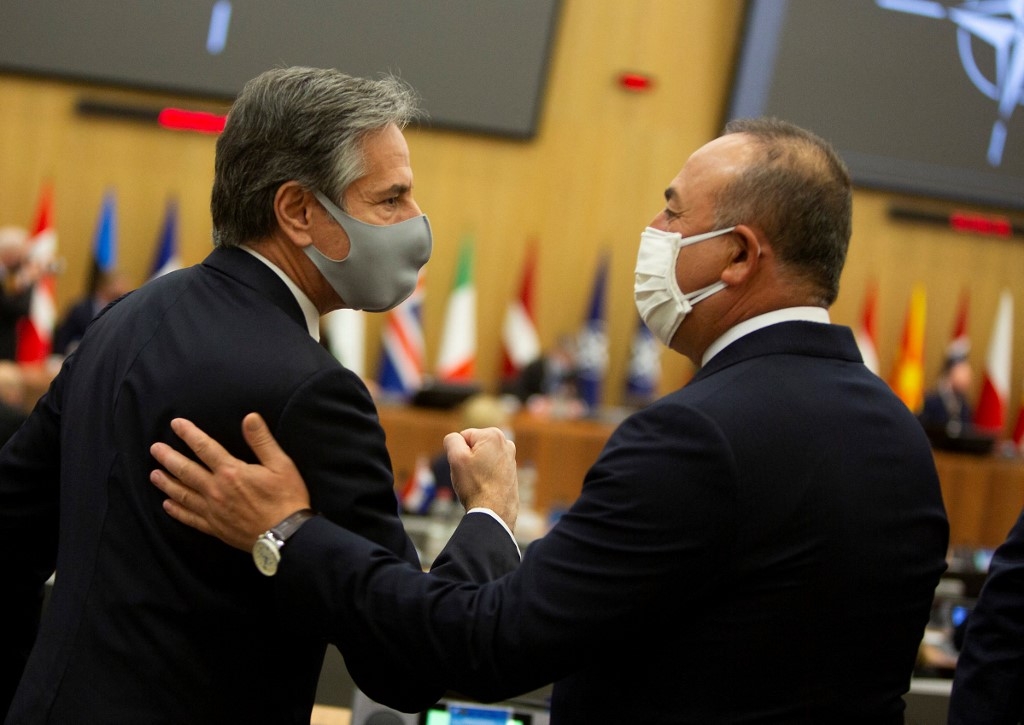
US Secretary of State Antony Blinken has told Turkey to abandon Russia's S-400 missile defence system during a meeting with his Turkish counterpart at a Nato summit of foreign ministers.
During Wednesday's meeting, the first face-to-face encounter between Washington and Ankara under the Biden administration, Blinken insisted Turkey scrap the advanced air defence system which has caused a series of disputes between the Nato allies.
"Secretary Blinken urged Turkey not to retain the Russian S-400 air defense system," the State Department said in a statement.
'On the S-400s, we reminded them once again why Turkey had to buy them, and repeated that Turkey had bought them and this is a done deal'
- Mevlut Cavusoglu, Turkish foreign minister
Blinken also expressed concern over Turkey's withdrawal from the Istanbul Convention on Preventing and Combating Violence Against Women and Domestic Violence. The two also discussed shared interests in Syria and Afghanistan, exploratory talks between Nato allies Turkey and Greece, democracy and human rights, the statement added.
The future of Turkey's standing in Nato was a central topic during day one of the two-day summit, with leaders focused on ways to ensure Ankara's continued partnership.
New MEE newsletter: Jerusalem Dispatch
Sign up to get the latest insights and analysis on Israel-Palestine, alongside Turkey Unpacked and other MEE newsletters
Blinken stressed Washington's "steadfast commitment" to diplomacy while seeking to mend ties with the 30-member bloc, as well as with Turkey specifically, following a deterioration of relationships under former US President Donald Trump's "America First" policy.
"The United States wants to rebuild our partnerships, first and foremost with our Nato allies - we want to revitalise the alliance," Blinken told reporters on Tuesday. "The last thing we can afford to do is take this alliance for granted."
S-400 dispute
Tensions betwee the US and Turkey spiked under Trump administration over Ankara's insistence on going forward with its purchase of the Russian S-400 missile defence system.
Following a series of failed negotiations, Turkey's activation of the missile system triggered US sanctions against the Turkish defence industry. The move also led to Washington removing Ankara from the F-35 fighter jet programme that Turkey had initially helped to fund.
Earlier this week, David Satterfield, the US ambassador to Turkey, made it clear that Washington could not lift US sanctions on Ankara unless the Russian missiles were removed from the country.
While Turkey has insisted that its decision to purchase the Russian systems was a matter of sovereignty, its Nato allies have not given up on the possibility of mediating a solution over the $2bn weapons deal.
"On the S-400s, we reminded them once again why Turkey had to buy them, and repeated that Turkey had bought them and this is a done deal," Turkish Foreign Minister Mevlut Cavusoglu said on Wednesday.
Nato Secretary-General Jens Stoltenberg acknowledged the dispute over the S-400 purchase when asked on Tuesday whether he would "consider Turkey as a trustworthy ally", given some of the recent disagreements with the state.
In response, Stoltenberg insisted Nato should be "a platform to consult and discuss" such differences going forward.
"Turkey has played an important role, not least in the fight against international terrorism, and no other ally hosts more refugees than Turkey," Stoltenberg said on Tuesday. "So Nato is the platform to address these issues, and we're trying to find ways to, at least to reduce tensions, but also sometimes to be able to find the solutions."
Turkey vs Greece
Stoltenberg also addressed the dispute between Turkey, Greece and Egypt over a maritime boundary in the Mediterranean Sea concerning rights to search for and exploit natural gas deposits.
While Nato allies continue to feud over the issue, Stoltenberg said he remained optimistic.
"We have seen over the last weeks or months that we have been able to make some important steps in the right direction, including establishing a de-confliction mechanism at Nato, where Turkish and Greek military experts meet, and set up different communication lines, and agree how to reduce the risk for incidents and accidents in the eastern Mediterranean," he said.
"This has helped to pave the way for direct talks between Greece and Turkey on the underlying dispute in the eastern Mediterranean. I also welcome the fact that despite the differences we see Nato continues its naval presence in the Aegean, helping to implement the agreement between Turkey and the European Union on migration issues.
"I think that the strength of Nato is that by having Nato ships there, we're able actually to bring Turkey, Greece, and the European Union together, and help to implement an important agreement," he continued.
Turkish influence
Stoltenberg also alluded to Turkish influence in Syria and its strategic positioning in the Middle East.
"There is no way to deny that there are differences. I have also expressed my concerns. But at the same time, I think we all have a responsibility to look into how can we address them, how we can find solutions, and also taking into account that Turkey is an important ally, bordering Iraq and Syria," Stoltenberg said.
Following the second meeting of foreign ministers on Wednesday, Stoltenberg also expressed concern over Russia's "wide-ranging military build-up" in the Middle East and elsewhere.
Recent Russian airstrikes in Syria have targeted civilian infrastructure, such as hospitals and fuel facilities, which are vital to Turkish interests.
Earlier this week, the Turkish Defence Ministry sent a statement to Russia asking it to stop such attacks.
While US policy in Syria has been murky at best outside of its continued use of sanctions, Washington has definite interests in mitigating Russian influence in the region. The US and Turkey are both keen to curb Russia's influence in Libya.
Middle East Eye delivers independent and unrivalled coverage and analysis of the Middle East, North Africa and beyond. To learn more about republishing this content and the associated fees, please fill out this form. More about MEE can be found here.


